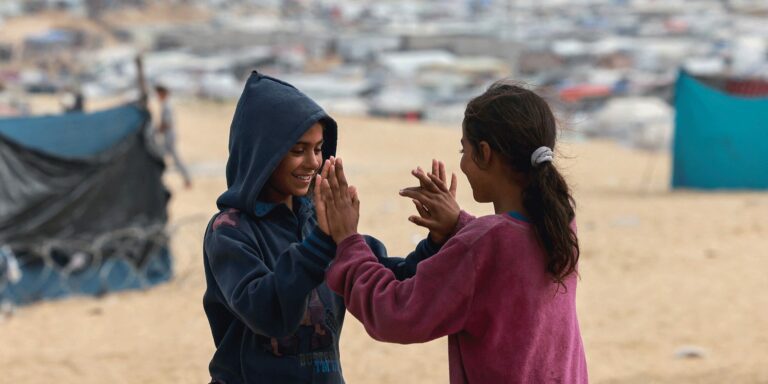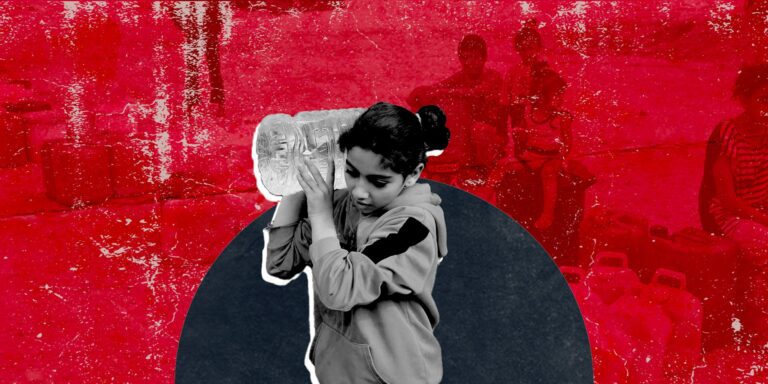A historic blaze in Sarouja
A devastating blaze in Damascus’ Sarouja neighborhood caused extensive damage to several iconic historical properties. Amongst the notably affected were the residences of two prominent figures from Syrian history: Abdul Rahman Pasha al-Yusuf (1871–1920) and Khalid al-Azm (1903-1965). Al-Yusuf was the esteemed Emir of Al-Hajj al-Shami (The Levantine Pilgrimage) and an advisor to the Ottoman Sultan during World War I. Meanwhile, Al-Azm served as interim Prime Minister on five occasions and also acted as President. Fortunately, government officials confirmed that the invaluable historical documents housed within al-Azm’s house remained unscathed, providing a glimmer of solace amid the extensive devastation.
Authorities have attributed the cause of the fire in Sarouja to scorching temperatures, the unique architectural characteristics of the old houses constructed with mud and wood, and the narrow streets of the old neighborhoods. These factors presented formidable challenges for firefighters in their efforts to combat the relentless flames. In a statement to the pro-regime Al-Watan newspaper, Brigadier General Issam Mohammad, Director of Fire and Disaster Management (FDM) at the Ministry of Local Administration and Environment (MLAE), has disclosed that the “economic blockade on Syria has had a detrimental impact on the country’s firefighting and rescue sector.” He stated that “numerous vehicles were rendered inoperable due to the acts of terrorism that Syria has endured.”
The challenges faced by firefighters
However, beyond flimsy pretexts, away from flimsy pretexts, beneath this tragic incident lies a pressing issue plaguing Syria’s firefighting sector. The country’s firefights have been facing significant challenges, primarily due to a shortage of active members, which in turn is caused by various factors. These include low salaries, unfavorable working hours, and a lack of rights and recognition for firefighters. This has resulted in poor performance and has harmed the reputation of veteran Syrian firefighters, as they are forced to live under stressful and miserable conditions with their families, leading many to consider changing their profession or even leaving the country in search of better opportunities.
In 2010, the number of Syrian firefighters reached more than 5,000. However, the numbers have dramatically decreased over time, and currently, there are only 1,802 personnel, including drivers, remaining throughout the country, with some of them nearing retirement age.
Due to the sharp decline in the number of firefighters, the authorities were forced to accept all applicants during the 2016 and 2018 recruitment sessions, regardless of their abilities. However, the number of applicants in both sessions did not exceed 50 people, and in the last application course in 2020, less than 10 people applied, leading to its cancellation.
Human resources and logistical deficiencies.
As of now, there are 463 firefighting vehicles operating in Syria. In the first half of this year, they had to deal with more than 4,500 cases of fires, drowning, building cracking, building collapses, and other emergencies. The aforementioned figures contradict other figures revealed by official statements last year. Those statements specified the number of vehicles in the fire brigades in Syria at 330, with 147 vehicles out of order and 96 of them under repair.
A retired firefighter stated that the Damascus Regiment was almost the best in Syria, boasting over 700 firefighters in 2010, excluding technicians, administrators, and others. However, today, this number has decreased to less than 150 people, including technicians and administrators. The retired firefighter, who requested anonymity for reasons related to personal safety, confirmed that the suffering of members in other regiments – such as the cities of Latakia and Tartous – is immeasurably greater than that of the members of the Damascus Regiment. The suffering is even more pronounced when comparing smaller regiments – such as the city of Quneitra – where the number of firefighters does not exceed four members.
The main deterrent for those considering entering the service is the strict prohibition that prevents firefighters from resigning once they join the profession. The firefighting sector is also of a military nature, with firefighters holding military ranks alongside civilian personnel.
Further struggles in Damascus
Currently, the fire stations in Damascus suffer from a shortage of drivers, firefighters, and rescuers. There is only one driver in each of the thirteen Damascus fire stations, which is a significantly small number. In the absence of a driver, the centers are compelled to borrow from one another. Moreover, due to the lack of personnel, rescue and firefighting teams are forced to take on each other’s roles, which is dangerous given that these two specializations are entirely different.
The firefighters endure a challenging shift schedule, involving a full working day of 24 hours, followed by two days (48 hours) designated for rest, except in cases of alerts or precautionary and security missions. However, finding time to rest becomes nearly impossible for them since they often take up additional jobs on their days off to earn extra income.
Unfortunately, this proves to be a challenging endeavor due to frequent traffic jams or transportation disruptions. As a result, they experience prolonged waiting periods on the roads and at bus stops while commuting between their service centers and distant homes. Consequently, this puts additional physical and psychological pressure on them and their families at the end of the day.
But why does a firefighter have to work on his day off as a bus driver, taxi driver, or street vendor?
The monthly salary of a firefighter in Syria ranges from 100,000 to 150,000 Syrian pounds (equivalent to 10.10 to 15.15 US dollars at an exchange rate of 9,900 Syrian pounds for one dollar, based on the remittance and exchange bulletin issued by the Central Bank of Syria on July 18).
Lamentably, this salary falls quite short of meeting their basic needs. For example, Ali (a pseudonym), a 52-year-old firefighter in Damascus, revealed that he spends approximately 300,000 Syrian pounds (30.30 US dollars) per month on cigarettes alone.
Moreover, injured firefighters are obligated to cover the costs of essential medical treatments themselves, making their financial situations even more challenging. A recently injured firefighter told Daraj that he pays more than three times his monthly salary each month to cover the costs of sterilizers and medical gauze.
“These pressing financial difficulties create an environment that discourages the most courageous and noble young men from joining the firefighting profession,” adds Ali, who declined to be identified out of fear for his safety.
With a crumbling medical system and inadequate health insurance, firefighters encounter bureaucratic hurdles when in need of emergency medical care. Not only do these delays worsen their condition, but they also elevate the risk of complications that could have been prevented with timely treatment.
Lack of remuneration and equipment
The firefighters’ plight is further worsened by the absence of financial remuneration, which they consider to be their rightful due considering the hazardous nature of their occupation, in addition to the lack of vital provisions needed for carrying out strenuous duties.
The situation is further exacerbated by the miserable condition of equipment and old vehicles, including outdated air-purifying respirators, which firefighters have to repair using primitive methods, posing risks to their safety. In 2022, even fire engines began to be sold in the second-hand car market. This development coincided with the Presidency of the Council of Ministers, allowing industrial facilities to import both new and second-hand fire engines, provided that their age does not exceed 5 years.
The firefighters also face challenges stemming from the polarization of the security and political situation, which can cause delays in accessing fire sites. While the checkpoints established by the Syrian army generally do not obstruct the movement of fire engines, delays can occur under the pretext of inspections.
Neither supported nor privileged
In light of the current situation, firefighters in Syria feel let down, frustrated, and afraid, which affects their performance and often hinders their ability to complete their tasks, says Ali. They are aware beforehand that neither they nor their families will receive the necessary support in the event of injury or death while on duty. Unlike their counterparts in the ministries of defense and interior, they do not have the right to obtain the privileges that the others have.
Personnel of the ministries of defense and interior, along with their families, enjoy significant privileges in the unfortunate event of death or injury during their service. These privileges encompass housing, financial support in the form of salary and monthly allowances, as well as comprehensive health coverage and insurance for all family members. Moreover, their children have the assurance of accessing high-quality educational institutions such as the “Sons and Daughters of Martyrs Schools,” in addition to the freedom to pursue their desired university majors.
Injuries suffered while on duty often result in minimal compensation and limited opportunities for alternative sources of income in the firefighting sector. For instance, a firefighter who lost a limb while on duty received a meager compensation of 450,000 Syrian pounds (approximately USD 870 – According to the approximate exchange rate of the Syrian pound on the date of injury); provided by the Damascus Governorate and the state-owned Social Insurance Corporation.
The injured firefighter could not get a license for a means of income, if he wanted to build a small kiosk in Damascus for example, because these opportunities are restricted to those in the Ministries of Defense and Interior. Daraj chose not to disclose the incident’s date to protect the source’s safety. Notably, Brigadier General Issam Mohammad, Director of FDM at MLAE, confirmed that the compensating wage differentials received by firefighters “still amount to 300 Syrian pounds (0.025 US dollars).”
Another firefighter underwent over 35 surgeries due to his injury, with each procedure requiring his personal appeal to the Governor of Damascus for financial assistance. These surgical operations, which should ideally be funded by the state without unnecessary delays, prompted him to seek the Governor’s support in navigating complex paperwork and bureaucratic government applications.
Heroes after all
Given these challenges, many firefighters are compelled to leave the profession and seek better opportunities elsewhere. The plight of Syria’s firefighters has been a long-standing issue, dating back to before 2011, and the recent fire in the Sarouja neighborhood highlights the urgent need for support and recognition.
Despite the hardships they face, firefighters like Ali remain dedicated to their mission, finding solace in saving lives and protecting homes, even amidst personal struggles and limited resources.
“A firefighter is not just a fraction, whether half or quarter, but a complete firefighter, encompassing both mind and body,” Ali adds. “Believe me, when a colleague enters the site of a fire, all the concerns I mentioned to you simply vanish. The smile of a child you save or the sight of a house you protect outweighs everything else.”






